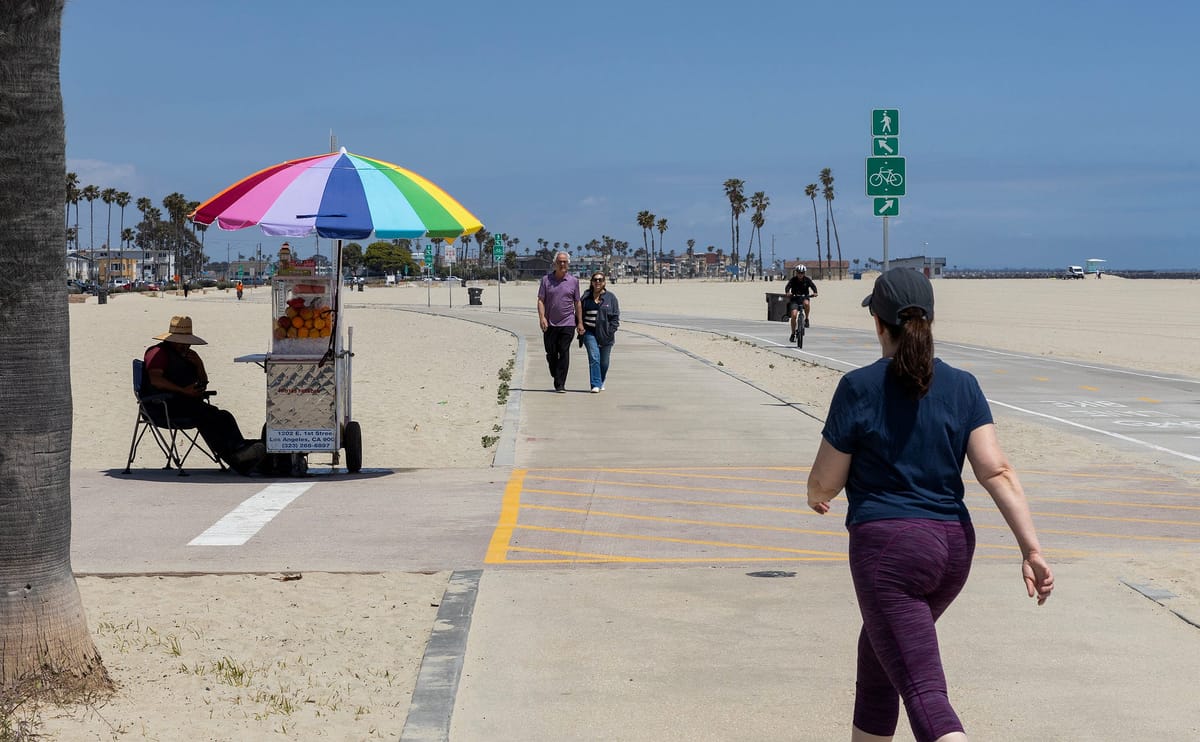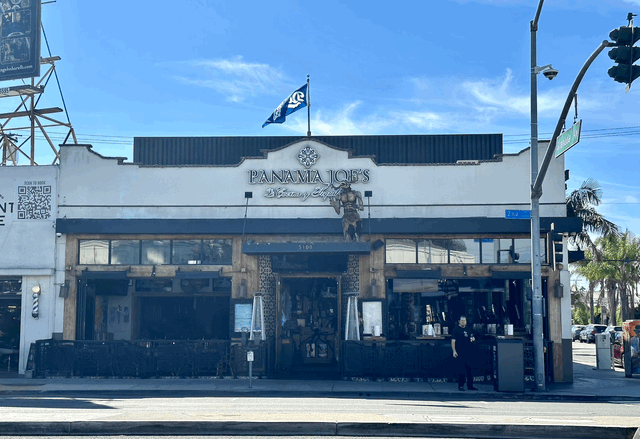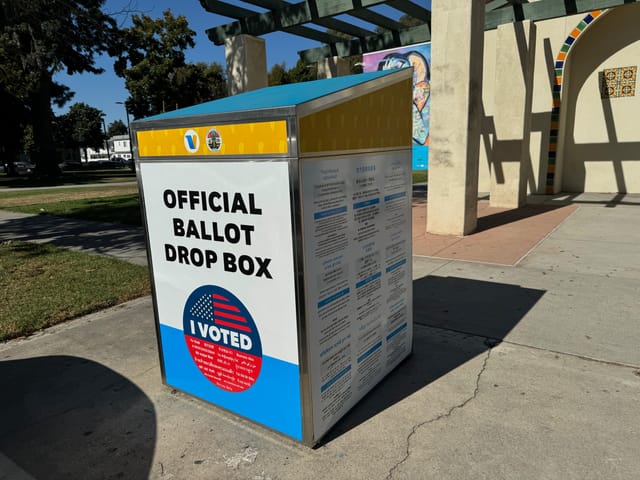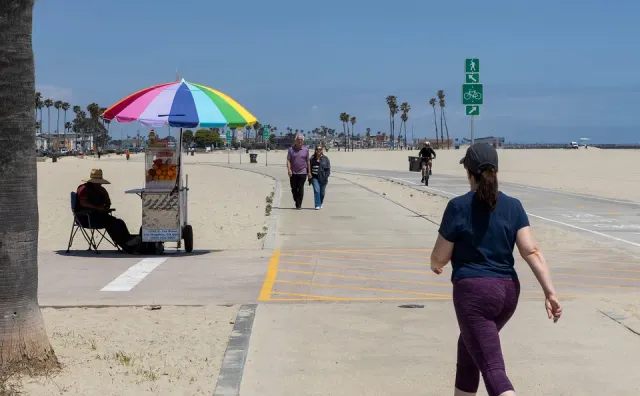Council approves $429K for 40 carts to be given to street vendors for free
The two contracts are for carts designed for fruit, tamales and grilled foods (but not raw meat).

Over the past several years, the number of street vendors in Long Beach has grown significantly. Now, steaming hot tamales, fresh fruit and other foods could become even more abundant on city streets following City Council approval of contracts for two manufacturers for up to 40 carts to be given to vendors free of charge.
During its meeting Tuesday, the council unanimously approved contracts with Central Commissary, Inc. of Sunland and Revolution Carts of Culver City worth $429,500 for the production and delivery of the carts.
Councilmember Cindy Allen said the plan is “well thought out,” noting that it will allow vendors, especially those with low-income background, to bypass “significant barriers” in an inclusive way.
“We’re not only supporting small businesses, but we’re helping to make sure that we enhance the quality of our food services,” Allen said during the meeting.
Brandon Richardson was laid off by the Long Beach Post on March 22. Thank him for continuing to cover Long Beach without pay.
The program will be funded through the Long Beach Recovery Act, which was adopted by the Long Beach City Council in March 2021 as the nation struggled to recover from the coronavirus pandemic. The local recovery act is funded through the federal American Rescue Plan Act, which requires the funds to be spent or obligated by contract before Dec. 31 or be returned.
Central Commissary will deliver carts with coolers for fruit as well as grill carts for hot foods (no raw meat), according to a staff report. Revolution, meanwhile, will produce carts for tamales. The number of carts purchased by the city will be determined by demand and program participation, according to Deputy City Manager Grace Yoon.
“Economies evolve and change,” Mary Zendejas said during the meeting. “I’m really glad we are able to provide this. This is a small portion but a very important portion.”
The free carts are the second phase of the city’s Sidewalk to Success Program, which was launched earlier this year. The first phase covered the cost of required business licenses, health permits and insurance costs (up to $550) for one year.
The program was made possible by the passage of California Senate Bill 946, which passed in 2018 and decriminalized sidewalk vending. The bill allowed local governments to regulate street vending.
Applications for a free cart are expected to be available in the summer, according to the staff report. To be eligible, applicants must have submitted a health permit application and be nearly complete in the process. They must also be nearly complete in the business license and insurance coverage processes.
In January, the council passed an ordinance that regulates where street vendors can set up and requires them to have a business license and health permits.
The carts themselves are pre-approved, according to city staff. All jurisdictions across the state have the same health and safety codes, meaning any cart approved elsewhere in the state can pass Long Beach’s requirements as well.
Long Beach Watchdog is a reader-supported publication. To receive new posts and support our work, consider becoming a free or paid subscriber.
City staff research found that just three cart manufacturers, including Central Commissary and Revolution, are going through the process of getting their carts pre-approved. Only Central Commissary and Revolution, however, have approved plan checks for multiple cart designs, including the three the city is slated to purchase.
The carts cost between $9,800 and $12,700 each, according to the staff report.
The approval also gives the city the option to purchase prepackaged ice cream carts using additional Long Beach Recovery Act funding.
This is not Revolution’s first foray into government street cart procurement programs. Co-founder Matt Geller, who also serves as executive director of the National Food Truck Association, recently expressed his frustrations over a similar program at the county level, according to the Los Angeles Times.
Los Angeles County officials have approved $6.81 million to assist street vendors, including procuring 200 code-compliant food carts to be given to vendors for free. But after nearly two years, none of the carts have been built.
“My enemy is time,” Geller, 49, told the Times of the county program’s delays. “Every single day that a vendor can’t vend legally ... that’s my enemy. It keeps me up at night.”
Long Beach officials did not immediately respond to a request for comment on the county’s delays or when they expect the free carts to be distributed to approved vendors.





